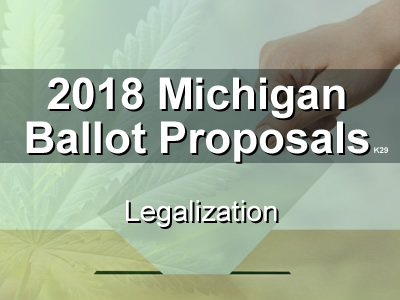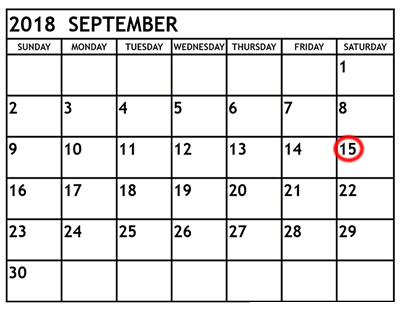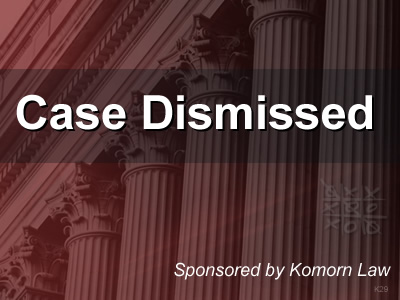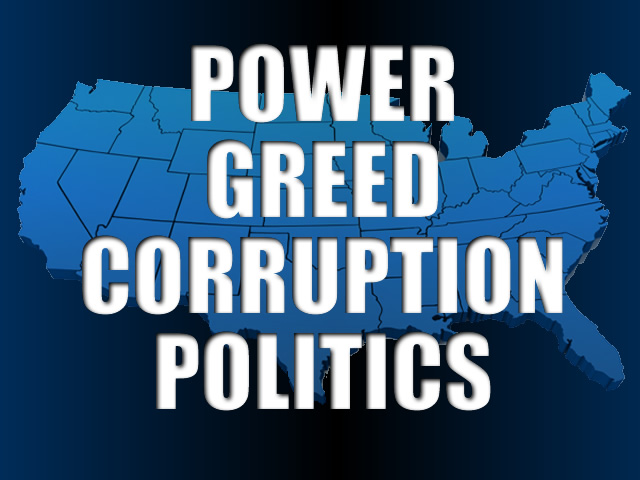
Sep 1, 2018 | News
ID Requirements to Vote in Michigan
You must show a photo ID -or-sign an affidavit attesting that you do not have a photo ID in order to cast a ballot.
- Voters with picture ID: Voters can satisfy the ID requirement by showing a Michigan driver’s license or a Michigan personal identification card.
- Voters who do not possess either document may show any of the following forms of picture ID as long as it is current:
- Driver’s license or personal ID card issued by another state.
- Federal or state government-issued photo ID.
- U.S. passport.
- Military identification card with photo.
- Student identification with photo from a high school or an accredited institution of higher education.
- Tribal identification card with photo.
If you do not have a driver’s license or other form of photo ID, you can get a state ID card at your local Secretary of State branch for $10. People over 65, people who have had driving privileges terminated due to physical or mental disability, or are blind do not need to pay this fee.
Voters who do not have acceptable picture ID or forgot to bring acceptable picture ID to the polls can vote like any other voter by signing an affidavit.
Questions regarding the voter identification requirement can be directed to your local city or township clerk’s office.

Sep 1, 2018 | News, Recent Victories, Victories Project
The proposed ballot language for marijuana legalization in the state of Michigan appears finished.
It will appear as proposal 1 on the November general ballot.
In April, the Michigan Board of State Canvassers approved a petition to legalize the recreational use of marijuana in the state of Michigan.
After the state legislature failed to take up the petition it would be put on the ballot for citizens to vote.
A proposed initiated law to authorize possession, use and cultivation of marijuana products by individuals who are at least 21 years of age and older, and commercial sales of marijuana through state-licensed retailers
This proposal would:
- Allow individuals age 21 and older to purchase, possess and use marijuana and marijuana-infused edibles, and grow up to 12 marijuana plants for personal consumption.
- Impose a 10-ounce limit for marijuana kept at residences and require that amounts over 2.5 ounces be secured in locked containers.
- Create a state licensing system for marijuana businesses including growers, processors, transporters, and retailers.
- Allow municipalities to ban or restrict marijuana businesses.
- Permit commercial sales of marijuana and marijuana-infused edibles through state-licensed retailers, subject to a new 10% tax earmarked for schools, roads, and municipalities where marijuana businesses are located.
-
More proposal detail and other Michigan proposals
About Komorn Law
Komorn Law has represented numerous clients through the legal chaos of starting up a business in the Michigan Medical Marihuana Industry.
If you or someone you know is facing charges as a result of Medical Marijuana, DUI, Drugs, Forfeiture, Criminal Enterprise, etc. Please contact our office and ensure you’re defended by an experienced lawyer in the evolving laws.
Lead attorney Michael Komorn is recognized as an expert on the Michigan Medical Marihuana Act. He is the President of the Michigan Medical Marijuana Association (MMMA), a nonprofit patient advocacy group which advocates for the rights of medical marijuana patients and their caregivers.
Contact us for a free no-obligation case evaluation
800-656-3557.
Follow Komorn Law

Aug 31, 2018 | News
Sept 15, 2018 – The Michigan Cannabis Business Licensing Deadline
The Medical Marihuana Licensing Board’s September 15th deadline for unlicensed provisioning centers to shut down is approaching fast. Originally the deadline was June 15, 2018, but the state licensing office moved it due to an apparent backlog in processing applications
Only about 16 licenses out of a reported 637 applications have been approved.
There are approximately over 200 provisioning centers operating temporarily under state emergency rules. Most will have to shut down on the deadline date.
There are licenses that have been approved which include cannabis businesses in each of the five classes of operation in the state regulatory system. Even if there are more licenses approved at a meeting scheduled Sept. 10 meeting, it might only be a few.
“The implementation is insufficient,” says attorney Josh Colton of the Komorn Law firm. “Patients need safe access to their medicine. Extending the deadline from June to September was for this purpose. To all of a sudden shut this down is going to leave quite a few people scrambling.”
There are approximately 300,000 Michigan medical marijuana patients. The licensing bureau has calculated that two-thirds of the patients live within 30 miles or so of a county where one of the licensed provisioning centers is located.
“Even though I think [MMLB] are doing everything they possibly can, even if they are successful in getting 20 more facilities licensed, it is simply not enough to take care of the patient base,” says Colton.
“I have many cannabis business clients looking for answers” said attorney Michael Komorn who has experience and is recognized as an expert in Michigan Medical Marijuana laws.

Aug 29, 2018 | Michigan Medical Marijuana Association, News
Medical marijuana home delivery under consideration in Michigan
8/29/18
Medical marijuana patients might be able to soon have their medicine delivered… right to their homes under a proposed set of rules. Michigan officials are reviewing this with consideration.
Provisioning centers could send out an employee to deliver products to patients directly in a transaction as simple as ordering a pizza or Chinese food.
Marijuana home deliveries are allowed in Oregon, California and Nevada — though their programs are not all universal. Colorado, Washington, Alaska and Washington D.C. don’t allow for home delivery.
Under the proposed rules in Michigan, medical patients could order online and pay online for home deliveries.
Provisioning centers would be allowed to staff one person to make home deliveries, who could only deliver to three patients at a time, according to the proposed rules. The provisioning center would have to be able to track the delivery’s GPS location at all times during the delivery, and logs would have to be kept. Deliveries would only be allowed to the home address of the patient.
Medical patients living in a city or township that has banned medical marijuana businesses from operating could receive deliveries from provisioning centers, said David Harns, spokesman for the state’s Bureau of Medical Marijuana Regulation.
A hearing on the permanent rules is set for Sept. 17. The emergency rules and permanent rules are largely the same, save for the ability of provisioning centers to make deliveries, Copenhaver said.
From MLive
- Join Komorn and other special guests at the Bay City MMLE Networking Meeting on 9/12/18

Aug 11, 2018 | News, Recent Victories, Victories Project
In late May, Detroit police, along with federal law enforcement agencies, raided what the media described as a “massive marijuana grow operation.”
It turned out to be Viola Brands a temporary licensed medical marijuana and cannabis company in Detroit that was founded by former NBA player Al Harrington.
It was raided even though they should have known it was legal.
The license address was listed on this document.
Six people were arrested and charged with felonies. The crop — more than 1,000 plants valued at several million of dollars, 100 pounds of marijuana along with lights, fans and testing equipment, were seized.
U.S. Border Patrol was credited with an assist. A Border Patrol agent who works in “gang intel” and was “embedded” with the Detroit Police Department conducted a “thorough investigation,” and obtained a search warrant, Detroit police Sgt. Gerry Johnson told a local television station.
“This is one of the most sophisticated operations I’ve seen in a long time,” Johnson said.
There was a reason for that. The “bust” was a raid of a licensed medical marijuana cultivation facility run by Viola Brands, a cannabis company founded by former NBA star Al Harrington.
Viola Brands had a state permit as well as local building permits.
Case Dismissed
On July 31, Komorn Law as well as other defense attorneys got Judge Kenneth King of 36th District Court to dismissed the case “in the interest of fairness.”
According to a defense attorney involved in the case
The Detroit Police apparently forgot — or did not bother — to secure the door to the facility after the raid, allowing burglars to enter and make off with expensive equipment the police did not seize
How did Detroit Police manage to “investigate” and “raid” a “marijuana operation” without figuring out that it was licensed by the city?
Detroit’s building inspection department is owed at least some of the blame. When police called to see if the operation was legitimate — the “investigation” referred to above — Detroit building inspectors gave the wrong answer and said that there shouldn’t have been a grow there.
Detroit building inspectors are digging in their heels, insisting that the grow at Viola Brands was illegal.
In court, prosecutors argued that Viola Brands was licensed only to “sell” at the facility, and not to grow.
“That’s absurd,” said medical marijuana defense attorney Michael Komorn in an interview with the Detroit News. “It’s a semantic issue because I would say everyone would understand that if they’ve been given permission to sell it, of course a medical marijuana caregivers center includes growing and cultivating marijuana.”
Komorn’s question — as well as the many other questions of who might be liable to damages done to Viola Brands during the raid now appears headed to a courtroom.
See Related Article Here
See various news video here
About Komorn Law
Komorn Law has represented numerous clients through the legal chaos of starting up a business in the Michigan Medical Marihuana Industry.
If you or someone you know is facing charges as a result of Medical Marijuana, DUI, Drugs, Forfeiture, Criminal Enterprise, etc. Please contact our office and ensure you’re defended by an experienced lawyer in the evolving laws.
Lead attorney Michael Komorn is recognized as an expert on the Michigan Medical Marihuana Act. He is the President of the Michigan Medical Marijuana Association (MMMA), a nonprofit patient advocacy group which advocates for the rights of medical marijuana patients and their caregivers.
Contact us for a free no-obligation case evaluation
800-656-3557.
Follow Komorn Law

Aug 6, 2018 | Blog, News
Thanks Wikipedia
Anyhow…
What’s up Facebook and Twitter. I hear you are trying to control what we read and see? Are you saying we have had too much to think…and you have to cut us off?
Someone asked me to write a blog about Facebook and Twitter shadow banning. There have been a lot of reports out lately of you elite tech overlords “shadow banning” specific topics or groups of people like marijuana even including some Government pages.
I have been reading and hearing about it and I just don’t really care about it at the moment. I don’t believe the news anymore and things on the internet and I don’t use Facebook or Twitter. Some would say that makes one socially inept and somewhat a criminal. I say GFY.
Shadow banning, shunning, exiling, manipulation, agenda, propaganda whatever you want to call it. It’s been going on in some shape or form since the dawn of man…whoops…humans…whoops..people or whatever we are today.
I am just going to post the article someone found and forwarded to me and give the writer all the credit. Because it’s Monday and I just don’t give a crap today to have to think about this and all the BS that is being spewed from so many orafices on the TV, radio, internet and office talk.
I am taking the rest of the day off as a “mental health day” in a safe space without my tethering gadgets. In other words I will be relaxing in the pool – in the deep end – without my phone, tablet or laptop with friends.
This is the article someone sent. probably because we are a criminal defense law firm that focuses on marijuana and medical marijuana charges in Michigan.
Here’s the article…
August 1, 2018
Chris Roberts
Something’s up with Facebook and marijuana—again.
Recently, pages with “marijuana” and “cannabis” in their names stopped appearing in search results.
The pages are still active and can be found via direct links, but users without the URLs or bookmarks are out of luck, leading to questions about whether the social network is “shadow banning” the pages.
Facebook has yet to offer an explanation for this snafu, which is, for example, affecting the page for the California Bureau of Cannabis Control, the official government agency that regulates the state’s multi billion-dollar industry, as well as cannabis-focused media outlets like Marijuana Moment and Marijuana Business Daily and nonprofit advocacy groups like the Marijuana Policy Project.
Wow. Facebook is shadow-banning @BCCinfo_dca, the California state agency regulating cannabis, putting it on the same level as InfoWars. pic.twitter.com/rFipqeWSSa
— Sylvia Chi, Esq. (@sylviachiesq) July 31, 2018
A “shadow ban” is the term used for when a user’s web resource–a social-media page or a web-forum post–isn’t deleted or blocked, but is only visible to the individual user.
bureau-of-cannabis-control
bureau-of-cannabis-control 2
Since 2014, when legal marijuana marketplaces opened up in Washington and Colorado, all major social networks declared cannabis-related ads verboten. To this day, significant limitations remain.
Advertisements for marijuana businesses or advocating cannabis use are regularly blocked on Facebook and other social-media websites—including Instagram, which is also a Facebook property—for violating community standards, which ban the sale of “illegal drugs.”
Algorithms often block promotions for news articles or other noncommercial posts that merely mention “marijuana” or “cannabis,” a situation that often requires lengthy appeals processes to clear automatically flagged content that doesn’t actually violate terms of service.
Last year, Twitter, which has more than 330 million active monthly users, briefly blocked all searches on its site for “marijuana.”
But this may be the first time access to a government agency’s marijuana-related page has been interrupted in this way.
In this case, the disruption is significant: Marijuana industry attorneys, entrepreneurs and businesspeople rely on BCC’s Facebook page for notices of upcoming meetings and for easy access to the latest iteration of the state’s lengthy and complication rules for the marijuana industry.
BCC staff are aware of the issue and have contacted Facebook for an explanation, but have yet to receive one.
“We have reached out to Facebook with no response so far,” BCC spokesman Alex Traverso said in an email to Marijuana Moment. “This is the first time something like this has happened. In fact, we’ve even done promoted posts on Facebook before without any issue.”
Reached via email, a spokesperson for Facebook asked for more information about the situation. After it was provided, the spokesperson did not respond to further requests for comment.
“It’s clear that something’s happened,” said Sylvia Chi, an Oakland, California-based attorney with clients in the marijuana space. “But it’s not clear what.”
It’s not just BCC; this “shadowban” seems to work by not surfacing any page that has “cannabis” or “marijuana” in the title through Facebook’s search, EXCEPT on the Facebook app for iOS. Other affected pages include @NCIAorg@MarijuanaPolicy, @MarijuanaMoment, and @MJBizDaily.
— Sylvia Chi, Esq. (@sylviachiesq) August 1, 2018
Users accessing Facebook via the iOS app have been able to find cannabis-related pages they already follow on the main search results tab, but tapping the “Pages” tab yields an empty result.
Chi theorized that the snafu is a “bug” or glitch rather than a conscious choice to de-list or shadow ban marijuana pages.
Facebook has in the past been criticized for inconsistent, incoherent and unrealistic community guidelines. Until 2016, users were able to conduct firearms transactions. And critics have faulted the social network for its inability to police hate speech, including posts and pages from white-supremacist organizations.
“I think their community standards around marijuana are problematic,” said Chi, who noted Facebook had earlier this year updated its guidelines to prohibit minors from seeing advertisements of gun accessories. “It seems like they could do the same thing for marijuana, but just don’t want to.”
You’re welcome for the BLs
Here are some more articles on the internet.
Google News Search on Shadow Banning…Unless they shadow banned your search.
Thought Crime-The Future
Reddit Forum-3 Years ago – 2018 is late to the party






